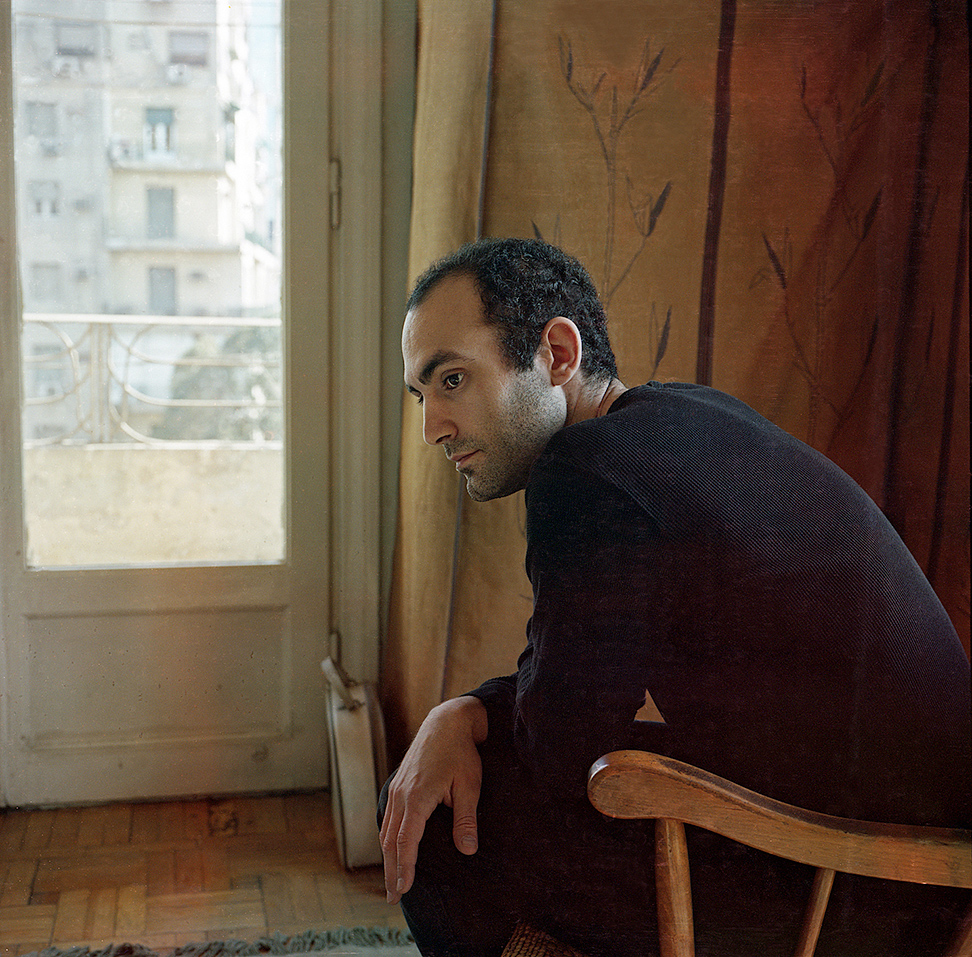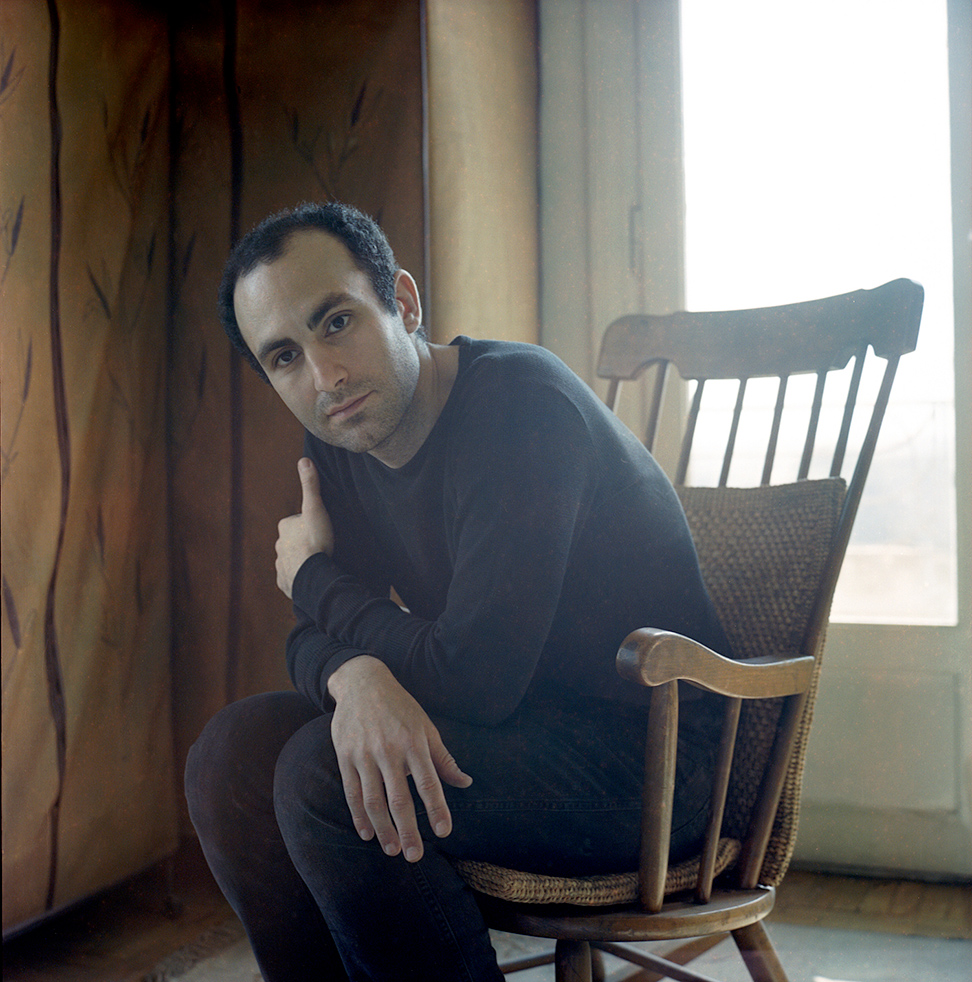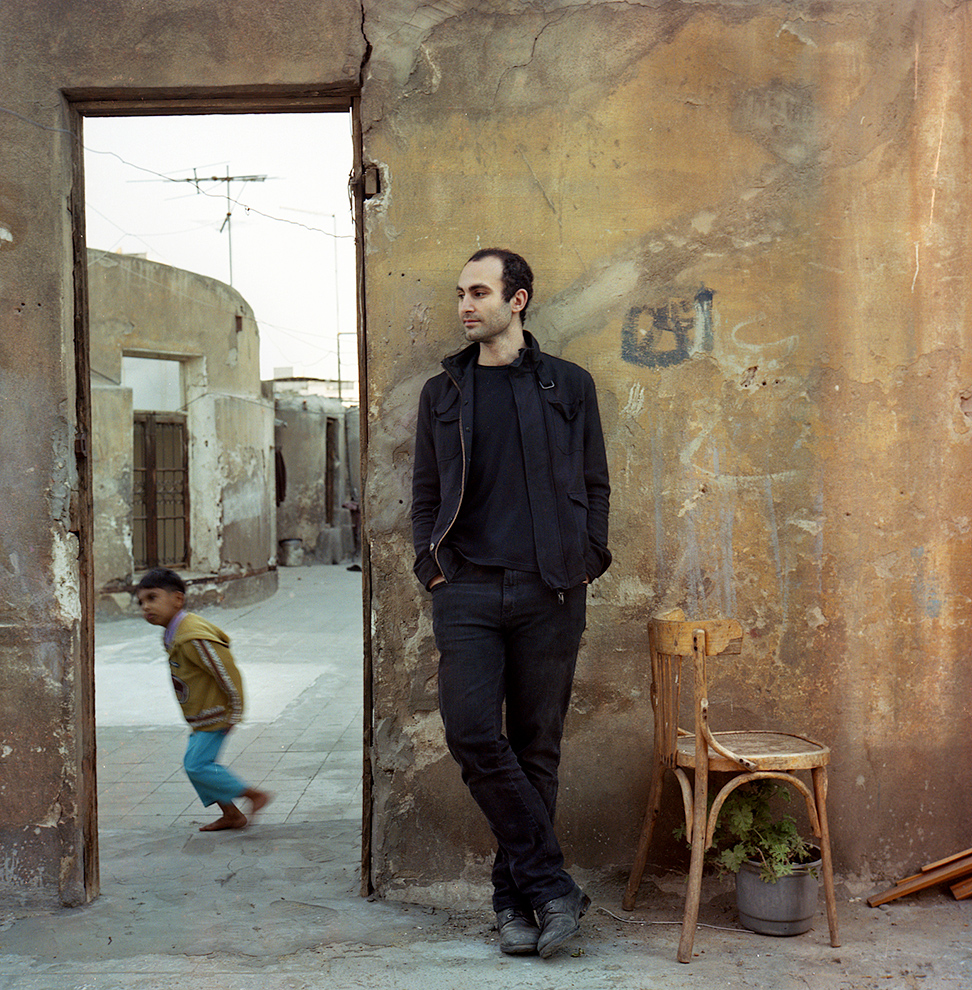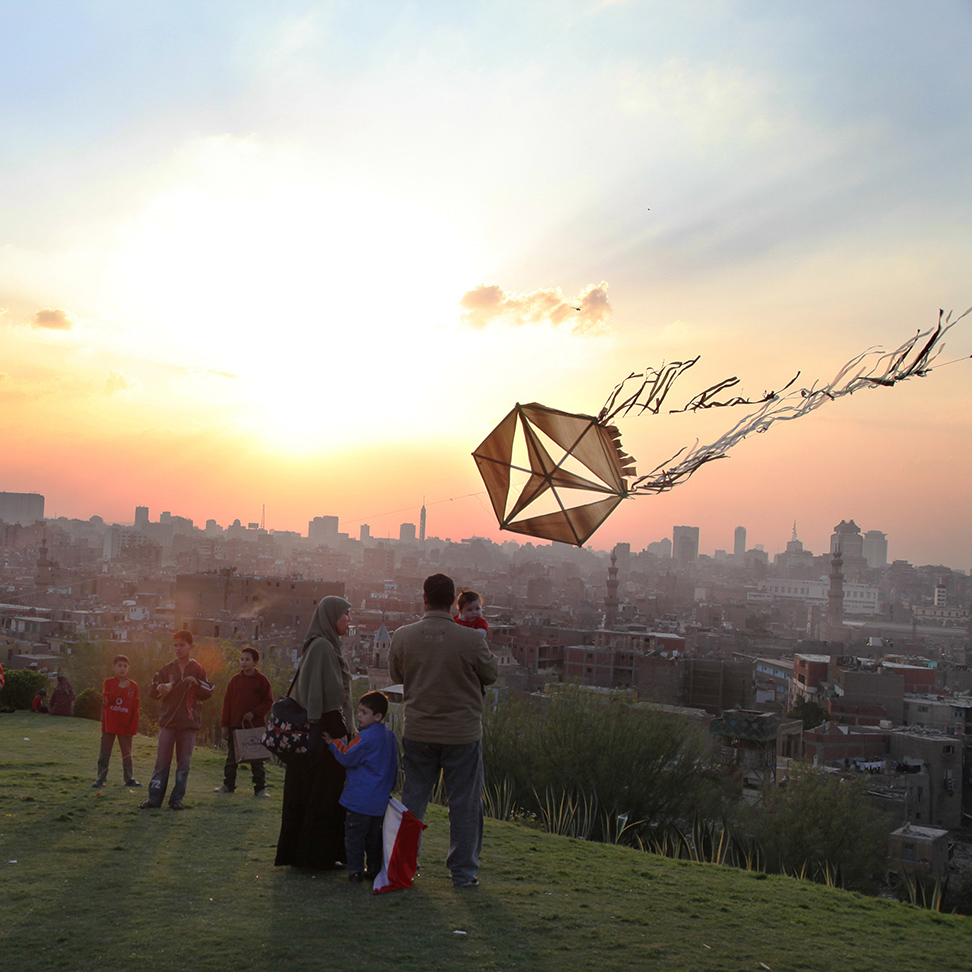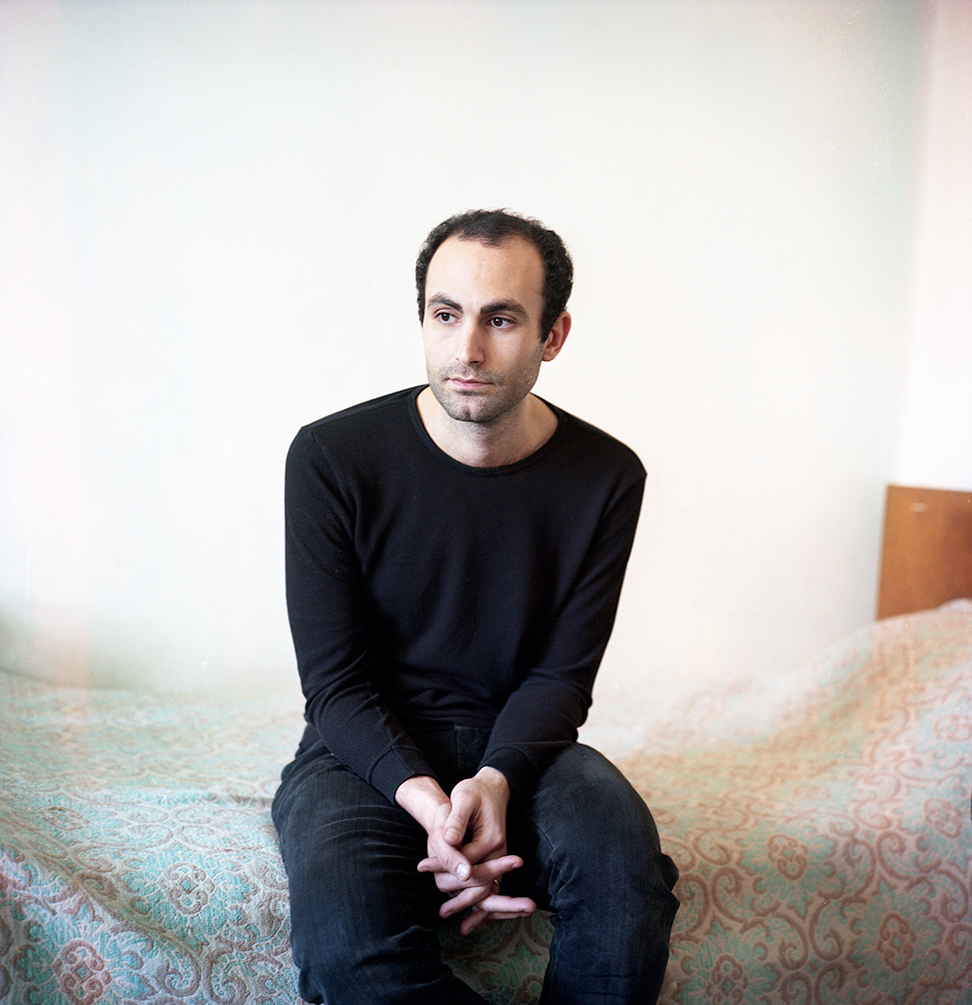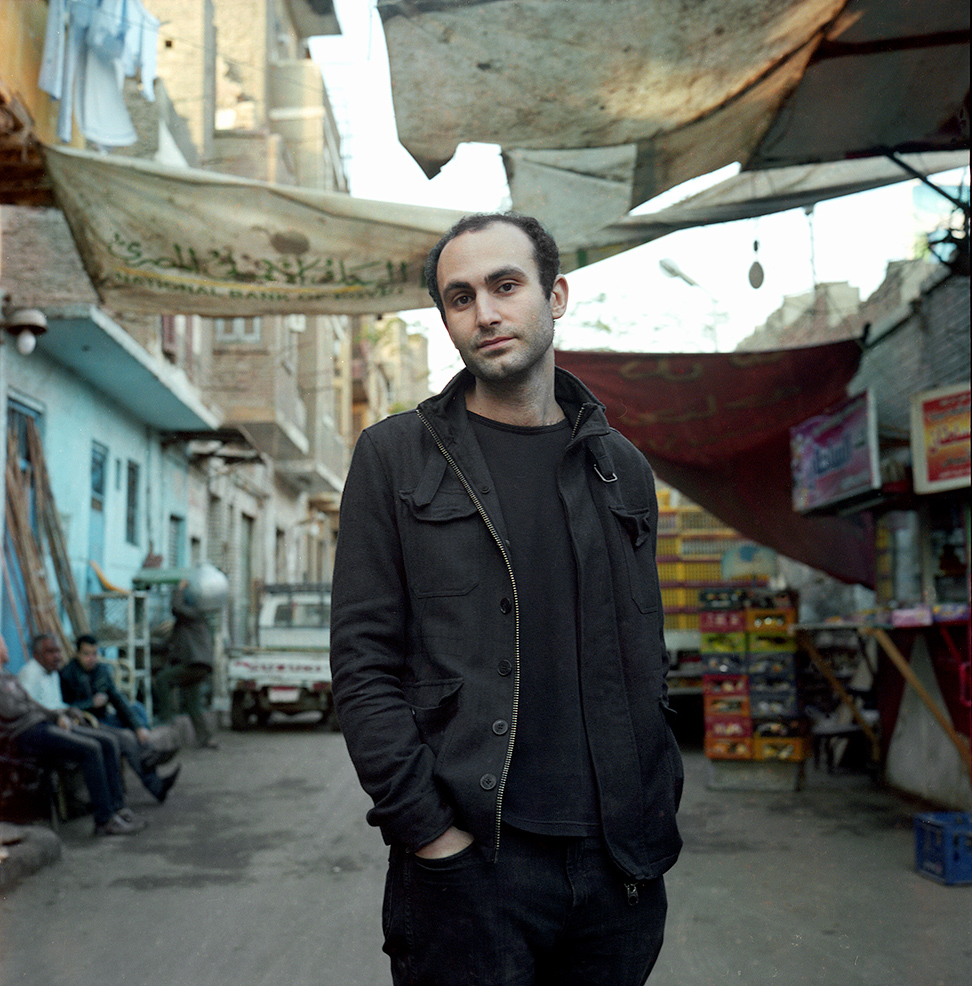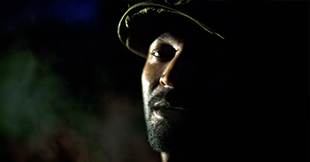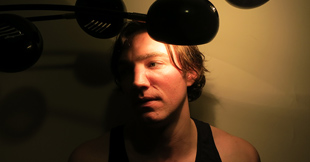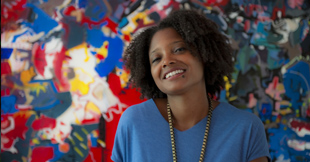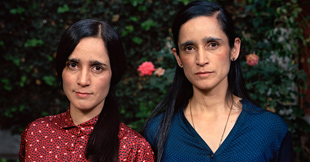
An Interview by Shirine Saad
Photographed by Rena Effendi
In 2007 the life of actor Khalid Abdalla took a new turn. He had just finished filming a series of American movies and was approached by a young Egyptian filmmaker, Tamer El Said, to act in his movie IN THE LAST DAYS OF THE CITY. This encounter, and extensive trips to the Middle-East in the wake of the Arab Spring, opened Abdalla’s eyes to a blossoming Egyptian film scene, and to the urgent need for political engagement in the country.
“I went to Cairo and met a whole community of filmmakers who knew more about parts of me than many people in England, where I grew up,” says Abdalla. “A lot of them came from a similar political background, with a similar way of viewing and experiencing the world artistically. We knew what we wanted. There was a sense that something drastic had to change and there was a desire to make sacrifices to make that happen.”
Soon Abdalla found himself in the midst of the sweeping Egyptian Revolution, where he took an active role as a protestor and activist, spending months on Tahrir Square and participating in the award-winning documentary THE SQUARE. This period helped Abdalla focus on what he believes is his mission: to take a dynamic role in political and social change in the Middle-East through grassroots protest and cultural work.
Activism runs in Abdalla’s blood. The 33-year-old actor hails from a family of prominent Egyptian activists who were exiled to England where he was born. After literary studies at Cambridge, the young actor discovered acting with the school theater at fifteen and then founded his own company after graduation. Acutely aware of his Arabic identity in a post-9/11 world, he began working in cinema, lining up roles in major American productions such as THE KITE RUNNER, UNITED 93, and GREEN ZONE.
During that period, Abdalla continued to shuttle between Europe and Egypt, meeting other like minded artists and activist and planting the seeds for his cultural institutions in Cairo: Mosireen, a media collective, Cimatheque, an alternative cinema center, and Zero Production, which produced films including an upcoming documentary called THE VOTE, directed by Cressida Trew and Hanan Abdalla.
After the revolution Abdalla started working on Tala Hadid’s upcoming fiction
film, THE NARROW FRAME OF MIDNIGHT, where he plays “Zakaria”, a man searching for his brother on the Iraqi battlefields.
“THE NARROW FRAME OF MIDNIGHT comes out of this current space of a renewed identity in Arab cinema,” explains Abdalla. “It is really about the space that is neither today nor tomorrow. The space of extraordinary possibility in which borders of all kinds collapse…If you chart these last 5 years there’s a very strong sense of things ending and things beginning and transitioning and what it means to mourn and fight for ideals.”
For Abdalla, there is no difference between protesting on Tahrir square, helping fund movies and acting in Hollywood or Cairo. “In order for Arab cinema to appear on a world stage you need to have a strong local cinema which is linked to the political journey,” he insists.
The actor believes that theater and cinema play a role in the revolution, offering counternarratives, expressing the hopes and struggles of a people, and leading the way to positive change. Inspired by the spirit of the Arab Spring, and by the artistic renaissance it has ignited, he aims to help the Egyptian film industry tell alternative stories, fostering debate, and intellectual community in the process.
Yet the activist expresses disillusionment when it comes to the outcome of the revolution. “It’s a very dark time in Egypt,” he says. “There are thousands of people in prison and we’ve had an extremely bloody year. ..As much as revolutions are a sign of resilience and beauty of the human spirit, they are also a sign of failure. I believe that ultimately you will never have change unless you have change in the structure of power.”
Throughout the whole tragic journey, however, Abdalla has entered new spaces of debate, dialogue, and change, and he is inspired by the energy he sees in the Middle-Eastern youth. “This is why I’m optimistic,” he says. “When looking through the failures of the past, something new replaces those failures. It is a dysfunctional, painful, frustrating process but I think it’s happening. Now is the time where there is an opportunity for revolutionary change to happen.”
